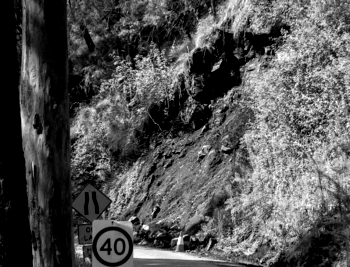Ensuring Solid Foundations: Soil Testing in Logan Reserve for Construction Projects
Introduction: Before breaking ground for any construction project in Logan Reserve, be it a new dwelling, extension, or a sparkling pool, one critical step ensures the success and safety of the venture—soil testing. Understanding the soil’s composition and stability is paramount to building a strong foundation and preventing potential structural issues in the future. In this article, we explore the importance of soil testing for construction projects in Logan Reserve, the process involved, and how it safeguards both the structural integrity and peace of mind for homeowners and developers.
The Significance of Soil Testing for Construction:
Building on a solid foundation is vital for any construction project. Soil testing helps assess the soil’s load-bearing capacity, compressibility, and drainage characteristics, providing essential data for designing appropriate foundations and structures. This step is especially crucial in Logan Reserve, where soil types can vary significantly across different areas, affecting construction requirements.
Identifying Potential Issues:
Logan Reserve’s diverse landscape can present various soil challenges for construction. Some areas might have expansive clay soils that contract and expand with moisture variations, potentially causing foundation movement. Other locations may have loose sandy soils, necessitating special considerations for stability. Soil testing helps identify these potential issues early on, allowing engineers and builders to plan accordingly.
Preventing Structural Problems:
A weak or unstable foundation can lead to severe structural problems over time. By conducting soil testing, homeowners and developers can prevent costly and hazardous issues such as settling, cracking, or structural failure. Proper soil assessment ensures that the construction meets the necessary safety standards, providing a secure living environment for residents.
Designing Suitable Foundations:
Based on soil test results, engineers can design appropriate foundations tailored to the specific soil conditions of the site. This may involve using deep foundations like piles or piers in areas with soft soils or expansive clays, ensuring the structure’s stability and longevity. Soil testing also aids in determining the suitable type and depth of footings, ensuring they can bear the load of the planned structure.
Minimizing Environmental Impact:
Soil testing not only benefits the structural aspects of construction but also contributes to environmental preservation. By understanding the soil’s characteristics, construction professionals can minimize excavation and disturbance, reducing the project’s overall environmental impact.
The Soil Testing Process:
Soil testing involves taking soil samples from the construction site and analyzing them in accredited laboratories. Certified geotechnical engineers evaluate the samples, considering factors such as soil type, compaction, moisture content, and bearing capacity. They then provide detailed reports with recommendations for the appropriate foundation design.
Compliance with Building Regulations:
Local building regulations in Logan Reserve often require soil testing as part of the construction approval process. Compliance with these regulations ensures that all construction projects meet the necessary safety standards and structural requirements.
Peace of Mind for Homeowners and Developers:
For homeowners and developers in Logan Reserve, soil testing offers peace of mind and confidence in the construction project. By investing in soil testing, they are proactively safeguarding their investment, avoiding potential issues, and ensuring the structural soundness of their property.
Conclusion:
Soil testing in Logan Reserve is a critical step that underpins the success and safety of construction projects. By understanding the soil’s composition and characteristics, homeowners and developers can design appropriate foundations, prevent structural issues, and comply with building regulations. Investing in soil testing is a proactive measure that ensures solid foundations, safe living spaces, and long-lasting structures, contributing to a prosperous and vibrant community in Logan Reserve.

